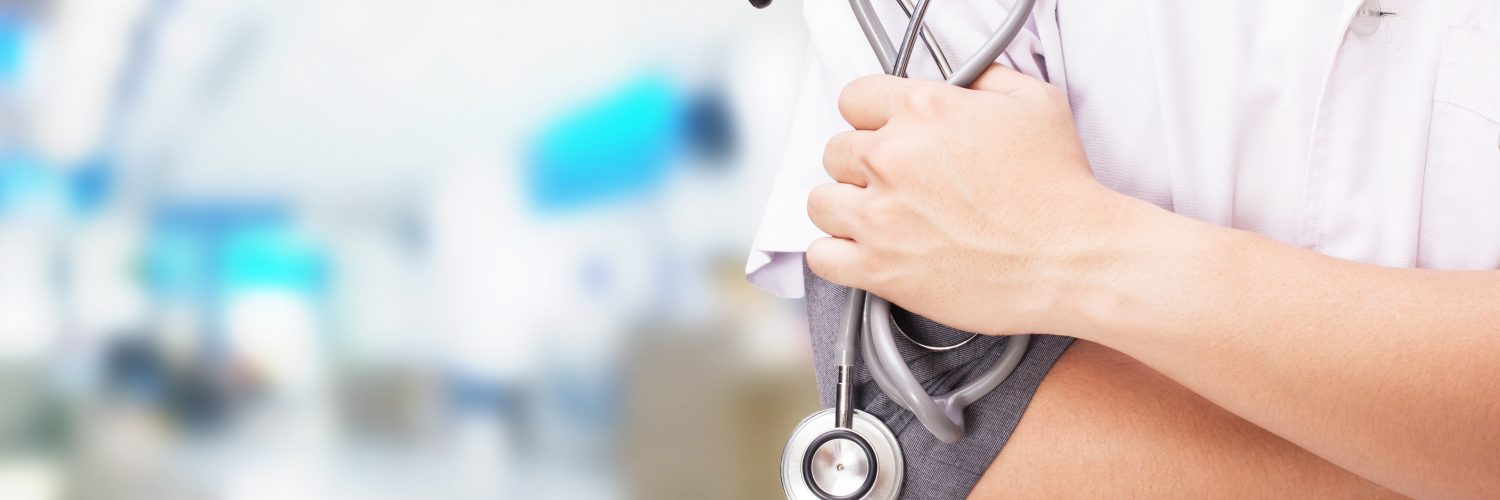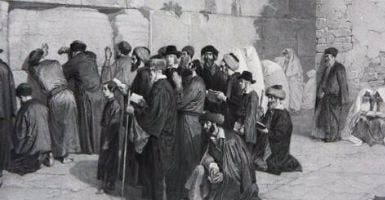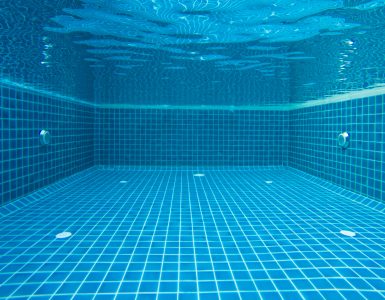Last week’s essay discussed the Torah’s granting of permission to heal. This week’s essay will discuss the Mitzva to heal.
The Shulchan Aruch rules that physicians are not only permitted to practice medicine, but they are commanded to do so: “The Torah grants permission to doctors to heal and it is a Mitzva, included in Pikuach Nefesh. If [a doctor] withholds treatment, it constitutes murder” (Y.D. 336:1).
This Halacha is based on the Ramban who states (Toras haAdam, Sha’ar haSakana):
It is logical [to assume] that [the word] Reshus in the statement, “The Torah grants permission to doctors to heal” means it is a Mitzva… Any doctor who understands this profession and its wisdom is obligated to heal.
This may also be inferred from the Gemara in Maseches Nedarim. The Mishna rules that if a person vows not to derive benefit from a physician, the physician may heal him a “Refuas Nefesh” but not a “Refuas Mamon”. The Gemara explains (41b):
What does this mean? If Refuas Nefesh means [healing him] free of charge and Refuas Mamon means [healing him] for payment, it should have said, “He may heal him for free but not for payment”. Rather, Refuas Nefesh means [healing] his body, and Refuas Mamon means [healing] his animal.
The Ran and Rosh, citing the Yerushalmi, explain that the reason a doctor may heal a person’s body is because it is a Mitzva and a vow cannot prohibit the performance of a Mitzva.
There are several Pesukim in the Torah indicate that it is a Mitzva for a physician to heal the sick:
- Va’ Hasheivoso Lo (Devarim 22:2)
On the aforementioned Mishna in Nedarim, the Rambam comments:
It is not prohibited [for the doctor to treat] the Choleh himself since it is a Mitzva (i.e., a doctor is obligated min haDin to heal sick Jewish people). This is included in the exposition of the Pasuk: “And you shall return it to him – including his body”. [Meaning,] if a person sees his fellow perishing, whether in body, finances, or mind, he must save him if he can.
The Rambam bases his assertion on the Sifrei (223), also cited in the Gemara in Sanhedrin (73a).
- v’Chei Achicha Imach (Vayikra 25:36)
The Ramban asserts that the obligation to save a person’s life is derived from the Pasuk: “v’Chei Achicha Imach – your brother shall live with you.” This would presumably also apply to a doctor who saves a life through medical treatment.
- v’Ahavta l’Rei’acha Kamocha (Vayikra 19:18)
The Ramban (Toras haAdam, Sha’ar haSakana) implies that there is a further source for this Mitzva, as noted by the Tzitz Eliezer (Kuntres Ramat Rachel, 5:21):
Between the lines of the Ramban in Toras haAdam, we may detect another Biblical source for the obligation to heal, namely, the Pasuk of, “You shall love your fellow like yourself”. As he writes in the context of [the episode of] R’ Papa who did not allow his son to remove a thorn from his body:
“It is possible to say that although one who wounds his fellow while treating him is exempt [from punishment] and [fulfills] the Mitzva of, “You shall love your fellow like yourself”, nevertheless, since there was somebody else [who could treat R’ Papa], he did not allow his son to do this lest he wound him more [than necessary and violate the prohibition of wounding one’s father]…”
We see that the Mitzva of healing is also derived from, “You shall love your fellow like yourself”.[1]
- Lo Sa’amod Al Dam Rei’echa (Vayikra 19:16)
Tosfos haRosh (Brachos 60a) cites the Ri of Orleans who holds that the source for the obligation to heal is the Pasuk: “Do not stand [idly] by the blood of your fellow” (Vayikra 19:16). This is also evident from Maseches Sanhedrin (73a), although there it refers specifically to cases of Pikuach Nefesh.
Reshus or Mitzva
The discussion above raises an obvious question. If it is Mitzva to heal, why must the Torah grant permission for a physician to do so? Do we need permissionto put on Tefillin or fulfill any of the other Mitzvos?
According to the view that the Torah’s permissionenables a doctor to charge for his work or a patient to seek out a second doctor (as discussed in last week’s essay), this question is easily resolved. But it remains difficult according to Rashi and other Rishonim who contend that permissionis needed to practice medicine at all.
- One approach would be to claim that no explicit sources exist that obligate the practice of medicine. The Mitzvais derived from general sources regarding caring for another person, as delineated above. Therefore, since there may have been reasons to forbid Refua (see Rashi and Tosfos quoted in last week’s essay), the Torah had to explicitly grant permission to practice medicine. But once permission was granted, Refua was included in the general Mitzva of saving lives (see Tzitz Eliezer ibid. and Chochmas Adam 151:25).
- The Taz has a different approach (Y.D. 336:1):
But a person does not merit this [to be cured by Heaven alone] and must engage in Refua as is the nature of the world. Hashem agreed to this and gave the Refua through natural means of healing. This is the permission that Hashem granted [to physicians]. Since people now utilize these means, it is incumbent upon a physician to practice medicine. This is evident from Perek haRo’eh (Brachos 62) where R’ Acha states: “A person who is about to undergo bloodletting should say: May it be Your will, Hashem my G-d, that this endeavor be a cure for me and may You heal me. For You are a faithful G-d and healer and Your healing is true. For it is not the way of people to [seek a] cure, but this is their custom.” Rashi explains: “Meaning, people should not have sought cures; only requested mercy.” Abaye said: “A person should not say this! For R’ Yishmael taught: ‘He shall surely heal’ – from here we derive that a physician is granted Divine permission to practice medicine.”
We may explain this Gemara as follows: R’ Acha requires a person who is about to undergo bloodletting to say this expression, “For it is not the way of people…” in the Tefilla itself.[2] In so doing, [the Choleh] excuses himself for seeking Refua via bloodletting, which is a natural means [of healing], which is [essentially] not appropriate, rather than requesting mercy for salvation from above. [I.e. he is saying,] “Since people are accustomed to seeking Refua by natural means, even though it is inappropriate, I too am doing so. Nevertheless, I admit that everything comes from Your hand – for You are a faithful G-d and healer.” However, Abaye disagrees with this. A person should not say, “But this is their custom”, for even the Torah agrees that Refua should be [performed] by natural means, as the Torah foresaw that man would not be deserving of Refua through Heavenly miracles. It is therefore incorrect to declare that the Pasuk “Rapo Y’rapei” informs us that [Refua] is a Mitzva, since if a person were worthy he would not require it! On the contrary, he would only need Refua from Heaven. But because it is the way of people it is permissible for him [to seek out a physician] and, hence, it now becomes an obligation and a Mitzva since his life has become dependent upon [natural Refua]. This is what seems correct to me.
In other words, the Torah’s permission to heal allows a person to subscribe to the “way of the world to seek Refua.” Once he has done so, it becomes a Mitzva to pursue medical treatment.
- We may also suggest that the aforementioned sources only teach us that there is an obligation of Refua for a Choleh sheYesh bo Sakana, whereas the permission derived from “v’Rapo Y’rapei” extends the obligation to even a Choleh sheEin bo Sakana. This is also stated by the Tzitz Eliezer (ibid. 23) and R’ Shlomo Zalman Auerbach (cited in the Nishmas Avraham Y.D. p226).
To be continued…
[1] The Tzitz Eliezer discusses why multiple sources for the Mitzva of healing are needed. We will discuss his approach in next week’s essay.
[2] Simply understood, these words are not part of the Tefila; they merely offer an explanation of it.














